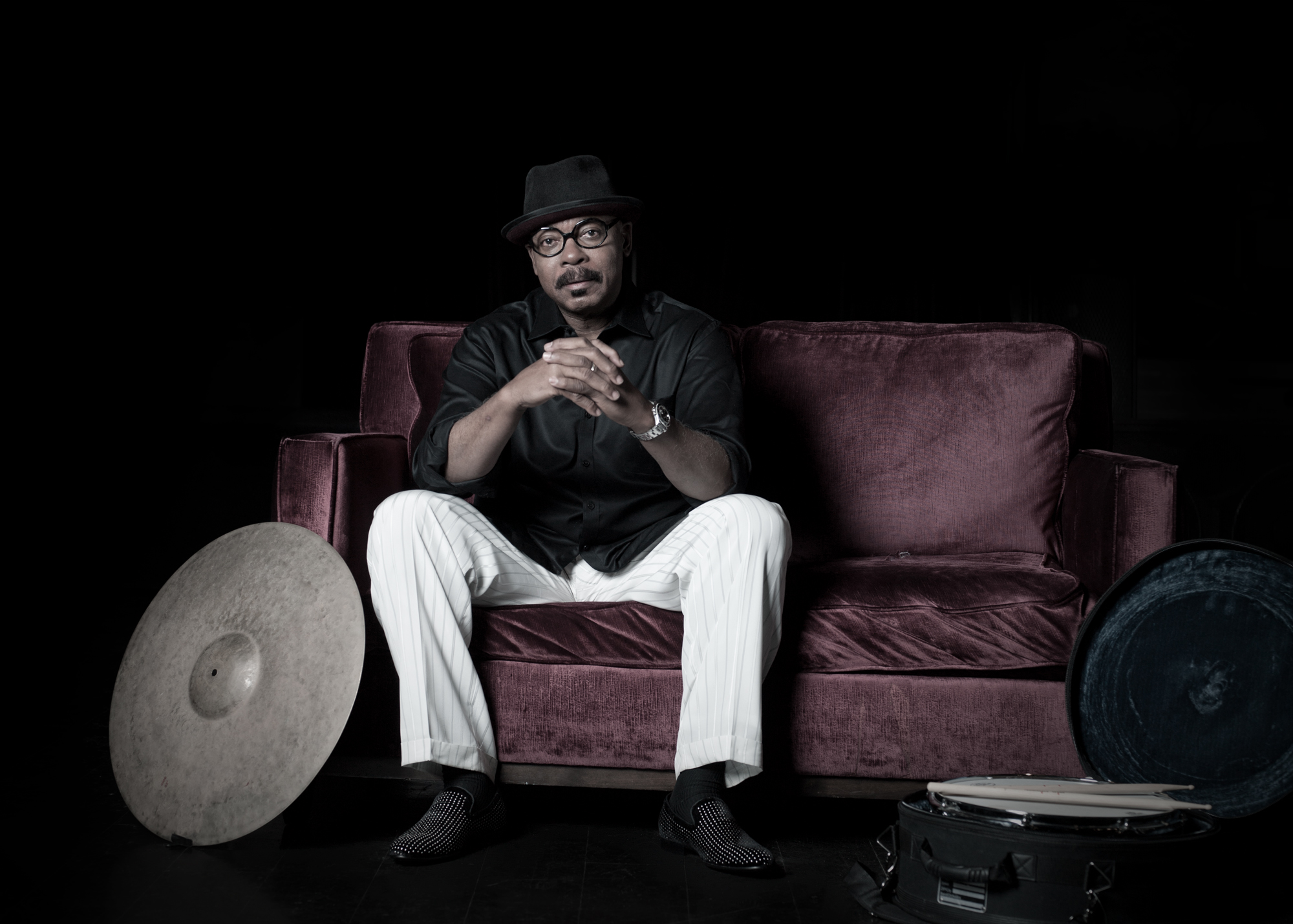
Harvey Mason isn’t just a jazz drummer. In fact, he isn’t just a drummer. Mason is a professional musician, which requires a sustained high level of adaptability and versatility that someone who only takes the time to learn a particular instrument and/or a particular style of music will never achieve. During Mason’s trip to Michigan (he comes to the Carr Center Arts Academy, 311 West Grand River, in Detroit on Saturday, Dec. 9 at 7 p.m.), when he is spending time meeting with young students anxious to learn from an acknowledged master, it is this lesson more than just about any other that he hopes to impress upon young musical minds.
If you want to survive in the music business, you better know more than just one tune.
“You should be able to play in an orchestra, in small bands, solo by yourself, and then the other aspects I mentioned as well; scoring, writing, being a multi-instrumentalist. And those are the things that I think will keep you in the business, because when it comes down to it, I’d rather be in the business than out of the business, and there are a number of ways of making a living. Depending on what comes your way, you should be prepared to go in any area. So diversity is very, very key,” said Mason in a recent interview.
Also, musicians should be able to play “all kinds of music, [and should love] all kinds of music,” he said. Because the one thing that has kept Mason working through all the numerous changes that have affected the industry in recent years has been his ability to prepare for the wave, and then ride the wave while so many others got sucked under the tide.
“Of course there have been major changes in the business since I first began in Los Angeles in 1970, but with those changes, I think for me to have stood the test of time was an attest to versatility. And that’s how I teach most students today is to be versatile. They should learn to read music, they should learn to write music, they should learn to compose films, they should learn about life in the business, they should learn about recording, all the aspects of music, not just being able to play their instrument and that’s it.”
Mason will be at the Michigan State University College of Music until Dec. 10 (he arrived on Dec. 4) as the second of four artists in the 2017-18 MSUFCU Jazz Artist in Residence program. Mason has instructed, performed with and toured with student musicians throughout the seven-day period which has been packed with workshops and concerts. In addition to time spent at MSU, Mason hit the road with MSU Jazz Orchestra I with stops at public schools and academies in Kalamazoo, Ann Arbor, Detroit and Traverse City.
From his early days at the Wonder Gardens, Mason went on to become a renowned jazz artist, studio musician, record producer, and member of the band Fourplay. He attended the Berklee College of Music and graduated from the New England Conservatory of Music. He started out playing with Erroll Garner and George Shearing, then moved to Los Angeles in the early 1970s to establish himself as a studio musician in film and television.
Soon thereafter, Mason entered the jazz and jazz fusion scene to work with artists like Bob James, Chick Corea, the Brecker Brothers, Chuck Loeb, Nathan East, Lee Ritenour, Herbie Hancock’s Headhunters, Gerry Mulligan, Freddie Hubbard, Grover Washington, Jr., and George Benson. In 1975, Mason began recording albums as a leader. More than a quarter century later, he acknowledged that the industry has changed tremendously – and not necessarily for the best, although there are some bright spots.
“Record sales are almost non-existent now. Record labels have diminished to two or three, I think. Electronic music has replaced a lot of musicians; a lot of musicians don’t get to play because of electronics. A lot of untrained people can now create music because of the advent of all kinds of technical sequencing and programs and sampling. Those are a few of the very, very important aspects of music that have changed. But the good news is you can distribute music yourself without having a label via internet, and that’s a good thing because it affords a lot of people who may not have had the opportunity to record. And also, the equipment you use to record is now very affordable for a lot of people.”
Mason will perform with MSU Jazz Orchestra I led by Whitaker in the MSU Fairchild Theatre on Friday, December 8, at 8 p.m. The concert will also showcase performances of MSU Jazz Orchestras II and III. Tickets are $15 for adults, $12 for seniors, and $5 for students. He is the second of four critically acclaimed jazz artists in residence at MSU for the 2017-18 season (the Jazz Artist in Residence program has been going strong for five seasons), and is the second jazz drummer to participate in the program following Jimmy Cobb in 2015. The 2017-18 residencies kicked off with Jazz Trumpeter Michael Philip Mossman in October.
Currently working on an album that is being produced by his two sons, Harvey Jr. and Max, Mason says he and the band Fourplay will be taking a break for a year in 2018 following a rigorous schedule the past few years. He said he is looking forward to the time off, which means working with other musicians and groups.
“It’s in pre-production now. It’s going to be a lot of fun, and look for that to be released in mid-2018. So that’s my primary focus right now, along with finishing up my work with Fourplay for the year. And then we’re going to be taking off for most of 2018. I’m looking forward to working with my Chameleon band, and playing with different people. Having new fresh experiences.”